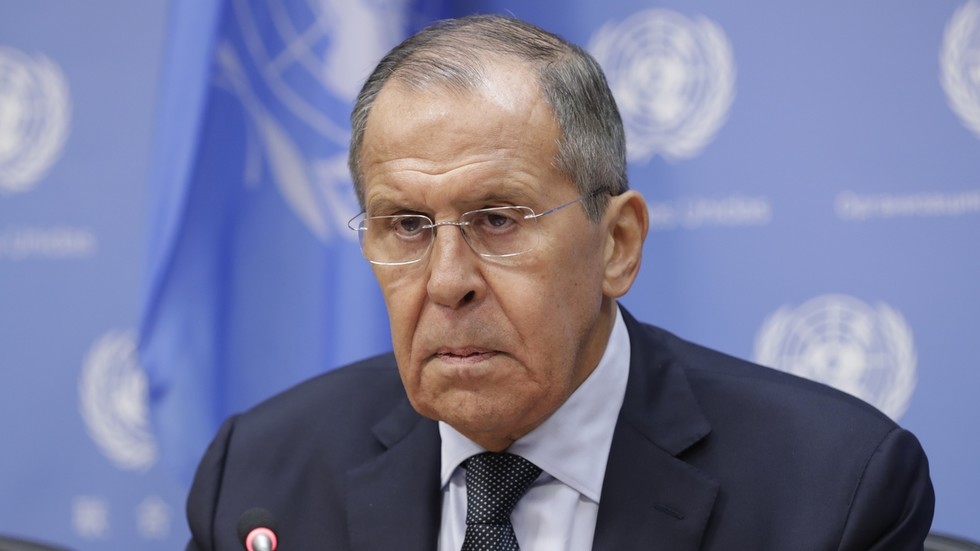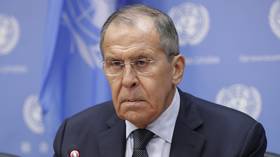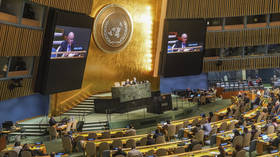
The West used ‘diplomatic terror’ to ensure an anti-Russian result in UN vote, says Russian Foreign Minister Sergey Lavrov

Sergey V Lavrov, Minister for Foreign Affairs of the Russian Federation. © EuropaNewswire/Gado/Getty Images
Moscow has slammed the United Nations General Assembly’s (UNGA) decision to adopt a resolution on the non-recognition of the referendums held in the Donetsk and Lugansk People’s Republics and in the Zaporozhye and Kherson regions, on joining the Russian Federation.
Speaking to Russia’s Channel One on Thursday, Foreign Minister Sergey Lavrov accused Western nations of using diplomatic terror and of “twisting the arms of developing countries and threatening them will all sorts of punishments,” in order to get them to vote to adopt the resolution.
“Only through such undisguised blackmail and threats did they manage to ensure the result. We all understand perfectly. And the statements of the Americans that they are not persuading anyone, and that everyone is voting by themselves, is a lie. And they also know it,” Lavrov insisted.
The minister’s statement comes after the assembly held an emergency special session on October 12 to vote to recognize the referendums as null and void. 143 out of 193 UN members voted in favor of the resolution. Five states, including Russia, voted against and 45 abstained or did not vote.
Ahead of the vote, Russia’s permanent representative to the UN, Vassily Nebenzia called the resolution a “provocative document” full of “ugly double standards that the West ventures to impose.” He went on to suggest that the adoption of this resolution has the potential to undermine any potential diplomatic efforts to resolve the ongoing military conflict between Russia and Ukraine.

Read more
Nebenzia also condemned the decision on Monday by UN General Assembly President Csaba Korosi to hold an open vote on the resolution, denying Russia’s request to use secret ballots. Korosi “not only deprived member states of the opportunity to vote by a secret ballot, without coercion, but also gave the blackmailers more time for their manipulations,” said the Russian diplomat, who had previously argued that, for many countries, it “may be difficult” to express their views publicly
He also noted that a number of national representatives of the “global South” have personally admitted to him that they had been subjected to economic blackmail and to direct threats from Americans and Europeans to support the UN resolution.
Before launching its military operation in Ukraine in February, Russia recognized the sovereignty of the Donetsk (DPR) and Lugansk (LPR) People’s Republics, arguing that Kiev had failed to represent and protect people living there. Residents of two other regions, Kherson and Zaporozhye, also voted by wide margins in public referendums to declare independence and join Russia. President Vladimir Putin signed unification treaties with the four new Russian regions on October 5.




